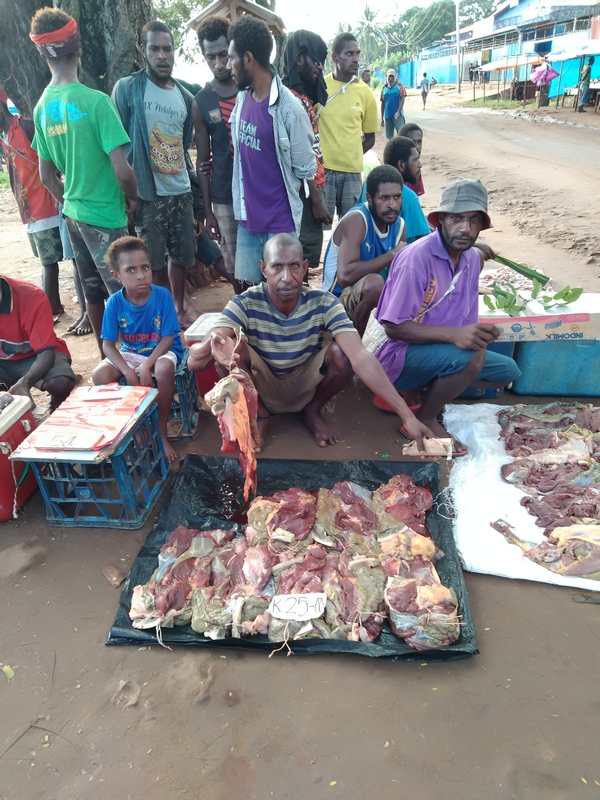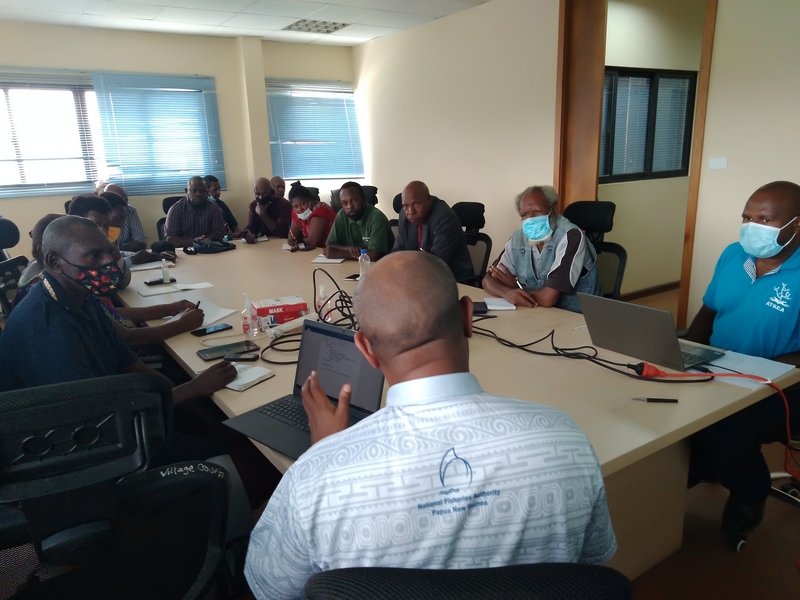In the South Fly district of Western Province in Papua New Guinea (PNG), the issue of illegal, unreported and unregulated (IUU) fishing is very common. Especially in coastal villages, fisherfolk rarely report details of their catch to the relevant authorities. Through a combination of management, policy and education, the ATSEA-2 Programme is working to conserve marine resources in South Fly.
Marine resources in the coastal regions of PNG face multiple threats, while the environment itself is also being exploited. Factors contributing to these problems include the use of un-regulated fishing gear, such as dynamite and other explosives or firearms used on ocean reefs by fisherfolk in an attempt to catch fish in larger quantities. If allowed to continue unchecked, these practices could cause major damage to both the ecosystems and commercial fish stocks.
In addition to local stressors in the form fishing activities, South Fly has fallen victim to the global challenges posed by climate change; a major issue in South Fly, where there has been a noticeable impact on local fish populations and damage to marine resources. Local people rely heavily on fishing for their food and livelihoods. To preserve these resources for future generations, multiple issues need to be addressed head-on and as soon as possible.

Credit: ATSEA-2 Programme

Working through the National Fisheries Authority (NFA) and alongside the government of PNG as the core partner in implementing this project, the GEF/UNDP/PEMSEA ATSEA-2 Programme is working to tackle each of the problems facing the communities and marine biodiversity of South Fly.
To improve the management of marine resources and preserve ocean habitats in South Fly District, the ATSEA-2 National Coordinating Unit (NCU) will work closely with different stakeholders to create fisheries management policy to better guide the fisherfolk. This will be achieved through collaboration with local government, district administration, provincial administration and the relevant national government departments.
At present, there is a knowledge gap among the fisherfolk in South Fly, who have never been educated on the issues that are now being addressed. To bridge this knowledge gap, the ATSEA-2 Programme is focusing on socialising fisheries management policy, while also supporting existing national fisheries management laws and traditional by-laws in relation to communities living along the coast. This includes support for administration to provide monitoring, surveillance and control over marine resources.
One example of education programmes focuses on catching juvenile fish; a practice that can quickly cause fish populations to die out or migrate. Coastal populations in South Fly need to be educated on how to catch specific types and sizes of fish correctly and in a sustainable way. Without improved awareness and educational tips on the type and size of fish to catch, the community will continue to overharvest their fish.
The ATSEA-2 Programme, through its regional offices in Indonesia, has already engaged individual consultants to conduct baseline surveys in the treaty villages of PNG and analyse the legal frameworks required for improving the fisheries management situation. This approach can provide a platform for improving fisheries management in the region.
Since its inception in 2019, the programme has been working to promote sustainable development in the ATS region and improve the quality of life of its inhabitants through a combination of restoration, conservation and sustainable management of marine-coastal ecosystems.
By focusing on issues like IUU fishing along the border of South Fly District, ATSEA-2 is committed to making a difference to the marine environments of PNG and the people who depend on them for survival. Through the implementation of sustainable integrated concepts, the Programme is addressing major issues affecting coastal populations along the borders of Timor-Leste, Indonesia, PNG and Australia.
(Joe Kiningi)


